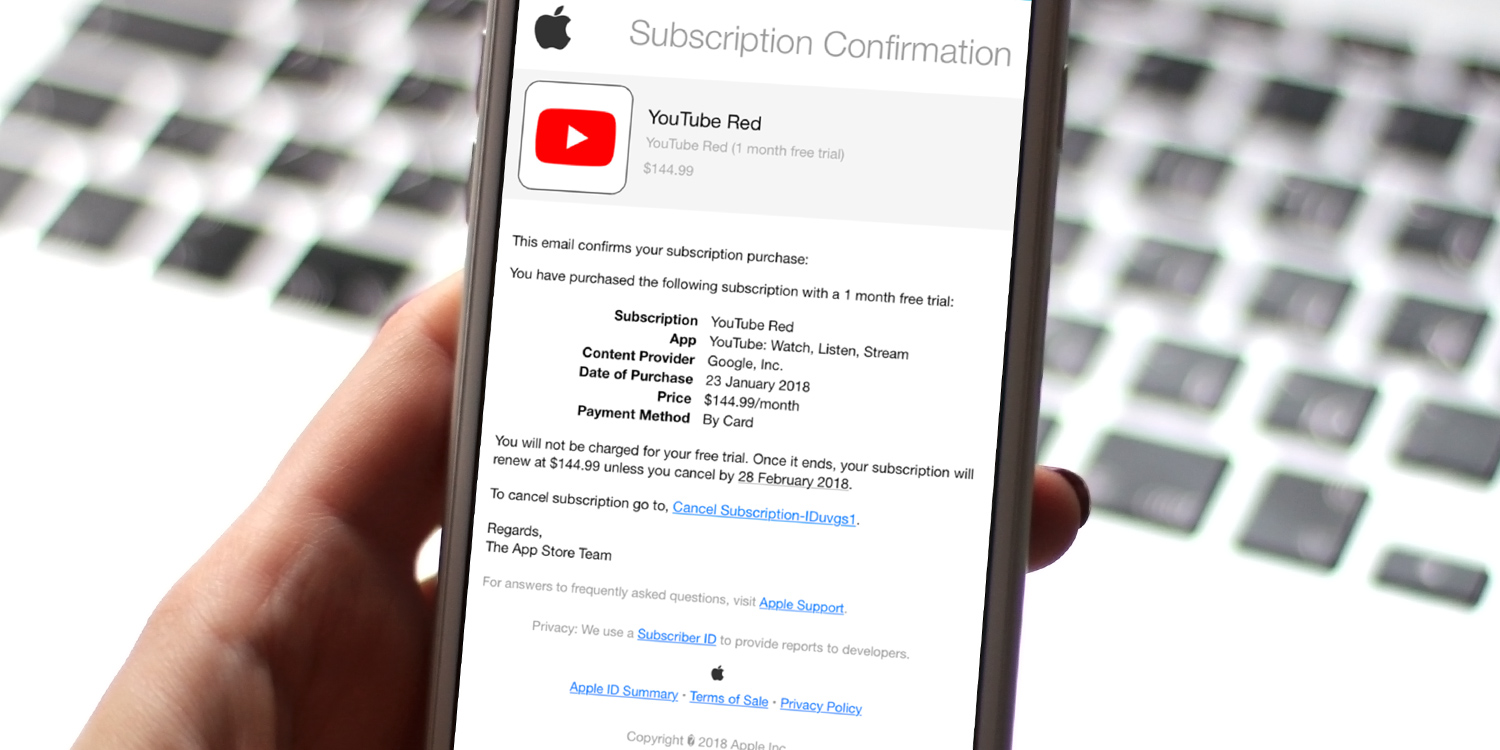Watch out for this scam email trying to steal your password
Online scams are nothing new, but it’s always worth keeping tabs on the latest trends to ensure you don’t fall foul of one yourself. When a user is tricked into revealing personal information of their own volition, it’s called a phishing attack. Phishing for login details is much easier than hacking your account, and it’s much more prevalent.
The latest phishing trick doing the rounds is yet another fake subscription confirmation email purporting to be from Apple. It confirms a pricey annual Spotify subscription, claiming your credit card will be charged $150.99 if you don’t amend your subscription immediately. If you follow the link through to amend or cancel, you’ll be taken to a fake Apple ID login form which steals your email address and password if you make the mistake of entering them. This is similar to a fake YouTube confirmation email that was popular earlier this year.
This particular scam has a few telltale signs – although the email is designed to look identical to a regular Apple email, there are several spelling mistakes, and the correspondence is signed off “from the Spotify Team” despite its Apple branding. If you check the sender’s address, it will also become apparent its not from an official @apple.com account. However, these things can be easily missed if you’re not careful, and plenty of similar scams don’t make these mistakes, so please be careful.
Apple (and other reputable companies) will never ask for your login information via text or email. If you think there’s a genuine reason to log in, don’t follow any links found in suspicious emails – instead, navigate to the website in question yourself so you can be sure you’re visiting the real deal. If you want more advice on spotting this kind of phishing scam (and what you can do if you receive one) be sure to check out Apple’s official advice on the matter.
We’ve reported on several phishing scams before which may still be in circulation, including these fake subscription emails and this crafty password-stealing scam. Be careful out there, folks!

